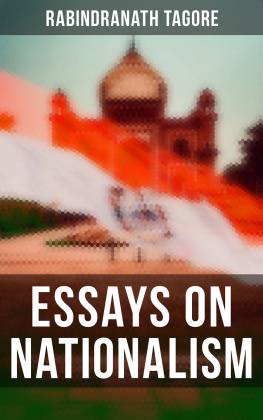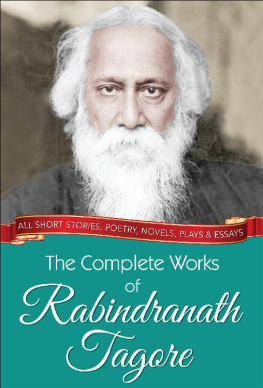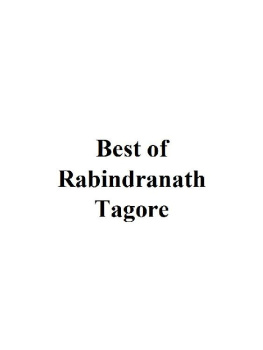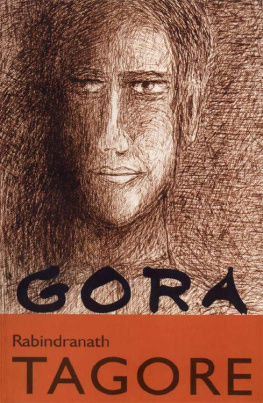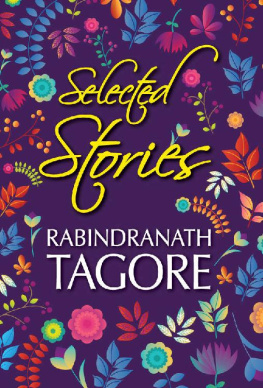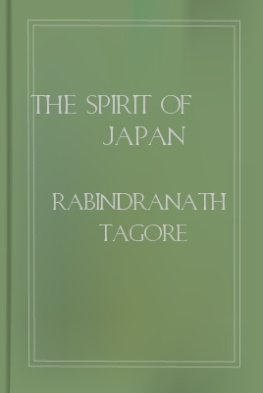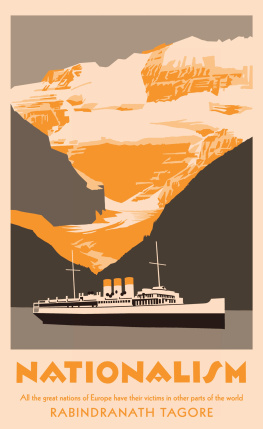NATIONALISM IN THE WEST
Man's history is being shaped according to the difficulties it encounters. These have offered us problems and claimed their solutions from us, the penalty of non-fulfilment being death or degradation.
These difficulties have been different in different peoples of the earth, and in the manner of our overcoming them lies our distinction.
The Scythians of the earlier period of Asiatic history had to struggle with the scarcity of their natural resources. The easiest solution that they could think of was to organize their whole population, men, women, and children, into bands of robbers. And they were irresistible to those who were chiefly engaged in the constructive work of social co-operation.
But fortunately for man the easiest path is not his truest path. If his nature were not as complex as it is, if it were as simple as that of a pack of hungry wolves, then, by this time, those hordes of marauders would have overrun the whole earth. But man, when confronted with difficulties, has to acknowledge that he is man, that he has his responsibilities to the higher faculties of his nature, by ignoring which he may achieve success that is immediate, perhaps, but that will become a death-trap to him. For what are obstacles to the lower creatures are opportunities to the higher life of man.
To India has been given her problem from the beginning of historyit is the race problem. Races ethnologically different have in this country come into close contact. This fact has been and still continues to be the most important one in our history. It is our mission to face it and prove our humanity by dealing with it in the fullest truth. Until we fulfil our mission all other benefits will be denied us.
There are other peoples in the world who have to overcome obstacles in their physical surroundings, or the menace of their powerful neighbours. They have organized their power till they are not only reasonably free from the tyranny of Nature and human neighbours, but have a surplus of it left in their hands to employ against others. But in India, our difficulties being internal, our history has been the history of continual social adjustment and not that of organized power for defence and aggression.
Neither the colourless vagueness of cosmopolitanism, nor the fierce self-idolatry of nation-worship, is the goal of human history. And India has been trying to accomplish her task through social regulation of differences, on the one hand, and the spiritual recognition of unity on the other. She has made grave errors in setting up the boundary walls too rigidly between races, in perpetuating in her classifications the results of inferiority; often she has crippled her children's minds and narrowed their lives in order to fit them into her social forms; but for centuries new experiments have been made and adjustments carried out.
Her mission has been like that of a hostess who has to provide proper accommodation for numerous guests, whose habits and requirements are different from one another. This gives rise to infinite complexities whose solution depends not merely upon tactfulness but upon sympathy and true realization of the unity of man. Towards this realization have worked, from the early time of the Upanishads up to the present moment, a series of great spiritual teachers, whose one object has been to set at naught all differences of man by the overflow of our consciousness of God. In fact, our history has not been of the rise and fall of kingdoms, of fights for political supremacy. In our country records of these days have been despised and forgotten, for they in no way represent the true history of our people. Our history is that of our social life and attainment of spiritual ideals.
But we feel that our task is not yet done. The world-flood has swept over our country, new elements have been introduced, and wider adjustments are waiting to be made.
We feel this all the more, because the teaching and example of the West have entirely run counter to what we think was given to India to accomplish. In the West the national machinery of commerce and politics turns out neatly compressed bales of humanity which have their use and high market value; but they are bound in iron hoops, labelled and separated off with scientific care and precision. Obviously God made man to be human; but this modern product has such marvellous square-cut finish, savouring of gigantic manufacture, that the Creator will find it difficult to recognize it as a thing of spirit and a creature made in His own divine image.
But I am anticipating. What I was about to say is this. Take it in whatever spirit you like, here is India, of about fifty centuries at least, who tried to live peacefully and think deeply, the India devoid of all politics, the India of no nations, whose one ambition has been to know this world as of soul, to live here every moment of her life in the meek spirit of adoration, in the glad consciousness of an eternal and personal relationship with it. It was upon this remote portion of humanity, childlike in its manner, with the wisdom of the old, that the Nation of the West burst in.
Through all the fights and intrigues and deceptions of her earlier history India had remained aloof. Because her homes, her fields, her temples of worship, her schools, where her teachers and students lived together in the atmosphere of simplicity and devotion and learning, her village self-government with its simple laws and peaceful administrationall these truly belonged to her. But her thrones were not her concern. They passed over her head like clouds, now tinged with purple gorgeousness, now black with the threat of thunder. Often they brought devastations in their wake, but they were like catastrophes of nature whose traces are soon forgotten.
But this time it was different. It was not a mere drift over her surface of life,drift of cavalry and foot soldiers, richly caparisoned elephants, white tents and canopies, strings of patient camels bearing the loads of royalty, bands of kettle-drums and flutes, marble domes of mosques, palaces and tombs, like the bubbles of the foaming wine of extravagance; stories of treachery and loyal devotion, of changes of fortune, of dramatic surprises of fate. This time it was the Nation of the West driving its tentacles of machinery deep down into the soil.
Therefore I say to you, it is we who are called as witnesses to give evidence as to what our Nation has been to humanity. We had known the hordes of Moghals and Pathans who invaded India, but we had known them as human races, with their own religions and customs, likes and dislikes,we had never known them as a nation. We loved and hated them as occasions arose; we fought for them and against them, talked with them in a language which was theirs as well as our own, and guided the destiny of the Empire in which we had our active share. But this time we had to deal, not with kings, not with human races, but with a nationwe, who are no nation ourselves.
Now let us from our own experience answer the question, What is this Nation?
A nation, in the sense of the political and economic union of a people, is that aspect which a whole population assumes when organized for a mechanical purpose. Society as such has no ulterior purpose. It is an end in itself. It is a spontaneous self-expression of man as a social being. It is a natural regulation of human relationships, so that men can develop ideals of life in co-operation with one another. It has also a political side, but this is only for a special purpose. It is for self-preservation. It is merely the side of power, not of human ideals. And in the early days it had its separate place in society, restricted to the professionals. But when with the help of science and the perfecting of organization this power begins to grow and brings in harvests of wealth, then it crosses its boundaries with amazing rapidity. For then it goads all its neighbouring societies with greed of material prosperity, and consequent mutual jealousy, and by the fear of each other's growth into powerfulness. The time comes when it can stop no longer, for the competition grows keener, organization grows vaster, and selfishness attains supremacy. Trading upon the greed and fear of man, it occupies more and more space in society, and at last becomes its ruling force.


